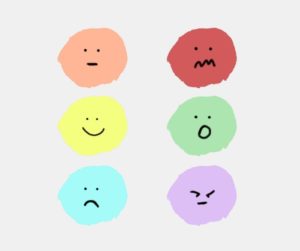After the calamitous last few years that we humans have experienced, we are all suffering mental strain (whether we know it or not). War, disease, polarization and isolation have caused immense amounts of stress. Now more than ever we need to get into good habits to improve mental health. With the 10 activities listed below, you will be setting yourself up to cope with anything that life can throw at you in 2023 and beyond.

Tip 1: Exercise
We all know that exercise is good for us, but not many of us know why. Exercise causes all sorts of changes in your body to help boost your mood and fight depression. From simply relaxing tense muscles to creating new neurons in the brain, the benefits of exercise are numerous.
You’ve probably heard about endorphins, but you may not know what they are or what they do. Endorphins help reduce the feeling of pain and promote a feeling of well-being. They are also great stress reducers.
So, if exercise releases endorphins and endorphins reduce stress…, you do the math. Exercise is what the doctor prescribes when anxiety is too familiar a friend.
Tip 2: Sleep
It might be strange that while looking at activities to improve mental health that sleep would be number 2. After all, sleeping is the opposite of being active. That said, if there is one habit to improve your mental health above all others, it would be getting plenty of shut-eye.
A lack of sleep can lead to all sorts of issues from reduced concentration to the extremes of depression (through reduced serotonin production) and even shows links to diabetes:
https://www.sleepfoundation.org/physical-health/lack-of-sleep-and-diabetes
Through globalization and the current hybrid work environment, people are working less structured hours across time zones. This means a higher chance of being exposed to unnatural light late into the night. Looking at screens and stressing about work just before bedtime is not one of the healthy activities to improve mental health!
Equally, setting alarms to wake up early to fit in a busy day has become a necessity, but is not a good habit to improve mental health. You can check out the Healthline sleep calculator to see when you should be going to bed: https://www.healthline.com/health/sleep/sleep-calculator#sleep-calculator
Tip 3: Purpose
Now that you are getting enough exercise and sleep to be able to function at your best, it’s time to focus on what to do with your energy. Depression is often a feeling of hopelessness. Hopelessness comes from not having a goal to achieve.
Although our lives are incredibly busy, it is very valuable to take some time out of every day to think. Some of the busiest and most successful people in the world block out hours of their day to devote to thought.
Think about what would you like to achieve with your life? It doesn’t have to be a gigantic dream, just something achievable that you can work towards. Learn a new language or a musical instrument. Get a promotion. Travel somewhere you’ve never been before. Join a charity or start a new hobby. By working towards a goal your mind will be less likely to wander into dark places.
Tip 4: Set Small, Achievable Goals
Linked to point 3 above. Everyone will feel like a bit of a failure if you set unrealistic goals. If you want to learn to programme in Python. Set an easy first goal like finding a suitable online course. The following day might just be to read the course overview. We are less intimidated when we know our goal is attainable and therefore less likely to give up and feel frustrated or depressed.
These small steps are also more likely to get us across the finish line rather than give up halfway through. The journey of a thousand miles begins with a single step, but really it begins with the small decision to actually take the first step.
Tip 5: Socialize
Have you ever done something incredible like bounce a marshmallow off the wall and catch it in your mouth? You turn around to high-five everyone in the room and realize that your 5th Zoom meeting of the day has left you with the misconception that you weren’t alone. Achieving goals, even small goals, is meaningless if there is no one with which to celebrate your victories. Humans are like sugar gliders.
If you don’t know what they are, they are worth a quick Google image search. Sugar gliders make great pets if you have more than one of them. Without social interaction, they can become depressed and even suicidal.
That’s why number 5 of the list of activities to improve mental health is making an effort to get out and see friends and family. Even join a club or society if you’re not good at making friends. Interacting with other people can give you a better perspective of life and a realization that everyone goes through difficult times.
More importantly it gives you a support system to help pick you up when you’re down. In turn you can also help others. Which leads to the next item in the helpful habits to improve mental health.
Tip 6: Give
As the old adage goes, it is better to give than receive. Perspective is a powerful tool for improving your mental state. We find a tendency to constantly compare ourselves to those “above” us.
Whether it be in social standing, monetary wealth or some other measure of perceived success, we are constantly wishing for more. The feeling of inadequacy is a surefire recipe for depression and anxiety. As self-centered and generally selfish people, when we give we are forced to take our eyes off ourselves to consider others.
Giving, especially to the less fortunate, is a reality check to reassess your circumstances and be grateful for what you do have.
Tip 7: Get Into Nature
There is a reason prisons are made of concrete blocks. Being confined away from sunlight and trees should be a good enough deterrent to prevent all crimes. Unfortunately, we seem to imprison ourselves as a way of life these days. Stuck behind computers at home or in office blocks, we rarely escape into nature.
A study from Stanford found that spending 90 minutes walking in nature had a 40% reduction in mood disorders compared with 90 minutes spent walking in an urban setting. There is something about escaping the hustle and bustle of city life that brings us peace. No screens, no constant barrage of communication, just fresh air and relaxation.
Tip 8: Tickle Your Funny Bone
One of the simplest activities to improve mental health can be done from the comfort of your chair. Laughing. Now that we have a thorough understanding of medical science, we know that laughter may not be the best medicine, but it might still be good mental medicine. Laughing has been shown to increase oxygen intake and release endorphins.
As we know from before, endorphins are great mood improvers and stress combaters. With the plethora of comedic content available on the internet, it isn’t hard to find something to make you laugh, so why not set aside some time to find some amusing memes or watch a stand-up comedy special on Netflix.
Tip 9: Eat Comfortable Food
When we’re depressed we like to eat comfort food. Foods that temporarily lift our moods that usually involve copious amounts of sugar. Perhaps you aren’t exercising or getting enough sleep (number 1 & 2 on this list) and feel like you need the energy boost.
Unhealthy food that tastes good more often than not leaves you feeling worse off. It is difficult to achieve your goals when you’re feeling bloated and lethargic. It is only in recent years that the benefits of nutrition have really been unlocked.
Staying away from processed foods and eating green leafy vegetables should be one of your regular habits to improve mental health. Not only will it increase your energy levels, but your mood too.
Tip 10: Breathe
It may be the simplest of the activities to improve mental health on this list as you’re already doing it around 22,000 times a day. The truth is that you may not be doing it correctly, especially if you’re stressed.
Books like “The Breathing Cure” by Patrick McKeown or “The Wim Hof Method” are delving into the idea that there is an optimal way to breathe to increase the amount of oxygen that is absorbed by the blood.
When we’re stressed we tend to breath fast and shallow, which is why you often hear parents telling frantic children to slow down and take a deep breath. Spend some time exploring different breathing techniques to see which one works for you.
Ultimately conscious breathing not only helps your body physically but focusing your mind on the repetitive task of inhaling and exhaling can be therapeutic to your mind as well. If you’re still struggling to implement these habits to improve your mental health, just remember that you’re not alone.
The stigma of having mental health issues has fortunately been eroded in recent years. So reach out to a professional if you’re not coping. God knows it’s been a rough few years!

